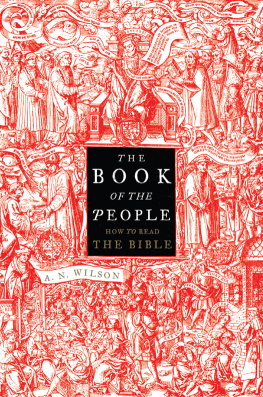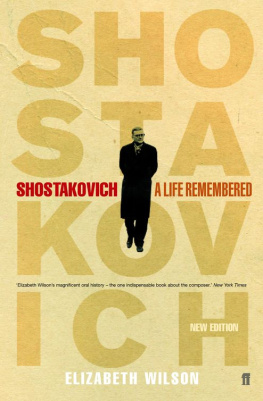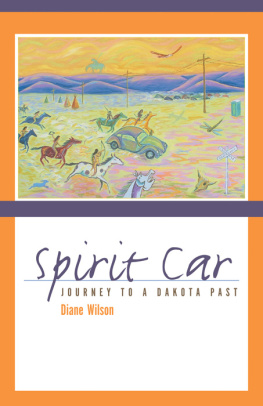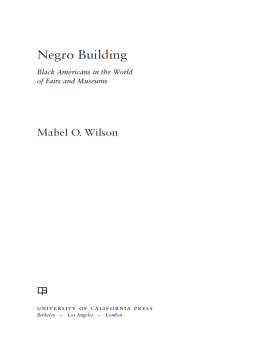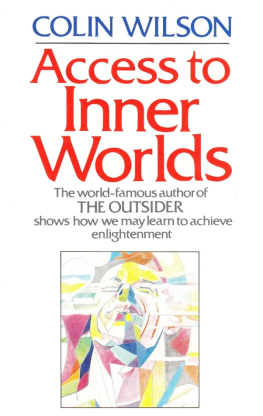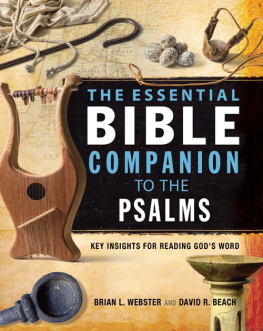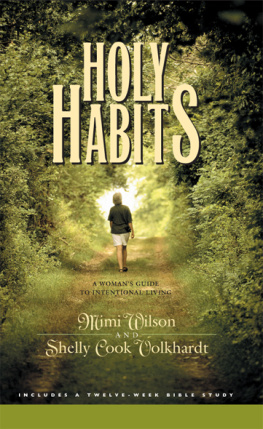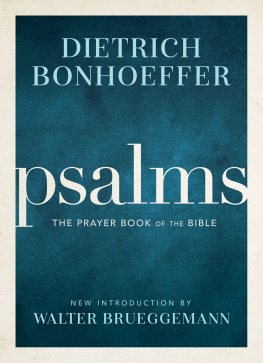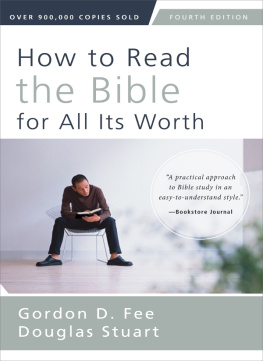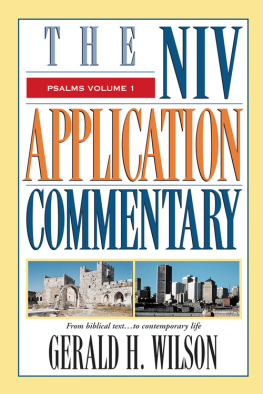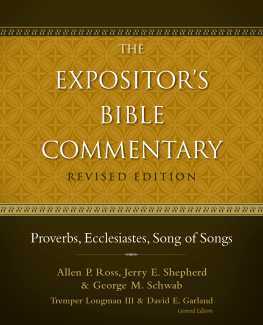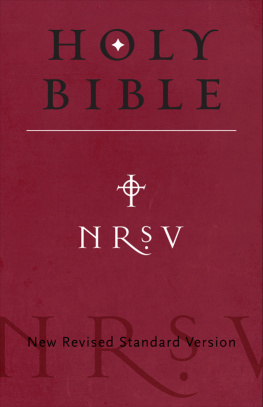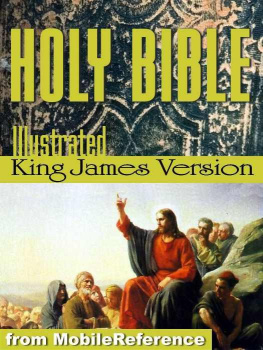Wilson - The book of the people: how to read the Bible
Here you can read online Wilson - The book of the people: how to read the Bible full text of the book (entire story) in english for free. Download pdf and epub, get meaning, cover and reviews about this ebook. City: New York;NY, year: 2016, publisher: HarperCollins, genre: Religion. Description of the work, (preface) as well as reviews are available. Best literature library LitArk.com created for fans of good reading and offers a wide selection of genres:
Romance novel
Science fiction
Adventure
Detective
Science
History
Home and family
Prose
Art
Politics
Computer
Non-fiction
Religion
Business
Children
Humor
Choose a favorite category and find really read worthwhile books. Enjoy immersion in the world of imagination, feel the emotions of the characters or learn something new for yourself, make an fascinating discovery.
- Book:The book of the people: how to read the Bible
- Author:
- Publisher:HarperCollins
- Genre:
- Year:2016
- City:New York;NY
- Rating:5 / 5
- Favourites:Add to favourites
- Your mark:
- 100
- 1
- 2
- 3
- 4
- 5
The book of the people: how to read the Bible: summary, description and annotation
We offer to read an annotation, description, summary or preface (depends on what the author of the book "The book of the people: how to read the Bible" wrote himself). If you haven't found the necessary information about the book — write in the comments, we will try to find it.
Wilson: author's other books
Who wrote The book of the people: how to read the Bible? Find out the surname, the name of the author of the book and a list of all author's works by series.
The book of the people: how to read the Bible — read online for free the complete book (whole text) full work
Below is the text of the book, divided by pages. System saving the place of the last page read, allows you to conveniently read the book "The book of the people: how to read the Bible" online for free, without having to search again every time where you left off. Put a bookmark, and you can go to the page where you finished reading at any time.
Font size:
Interval:
Bookmark:
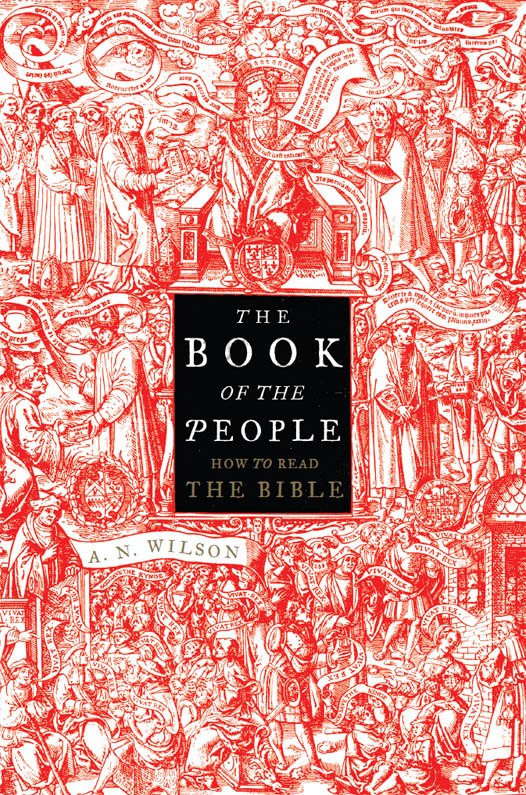
For
Susie Attwood
Whatevers written in what poets name
The book of the people...
W. B. Yeats, Coole Park and Ballylee, 1931
T HE BIBLE USED to be familiar to almost everyone in the Western world, even (I was going to write especially) to the illiterate. Visit any great church from Durham to Constantinople, from Rome to Jerusalem, and your eye will fall on images drawn from the Bible, which would have been instantly recognized by any visitor when these places were first constructed. There is Abraham, offering his son Isaac in sacrifice, and having his hand stayed by an angel even as he lifts a knife to the child. There is Daniel in the Lions Den. There is Noah in the Ark, and there is Noah having landed the Ark, lying in a state of drunkenness. For hundreds of years, the human race filled its mind with these Bible-based images.
With the invention of printing, and the coming of the Reformation, the Bible, translated out of its original Hebrew and Greek into German, English, French, and eventually all the languages of the globe, became what it had never quite been until then: primarily a book, an object which people read as a text. Before that, many people heard the Bible, and saw images taken from it, carved in stone, or painted on glass. But it was not primarily an object, certainly not a book they would have had in their own home. Then came Luthers sublime idea that every ploughboy should be able to read and understand the Scriptures. And from that idea sprang many unforeseen consequences perhaps the Enlightenment itself, and the eventual decision, by many who read the Book, that it was not true, or not true in the way which they had been taught.
People still went on reading the Bible, however, even in this time of crisis. The Bible would have been read to them in schools. Infant plays based on Daniel in the Lions Den, or Noahs Ark, or the Nativity of Jesus, would still have been part of their lives, as would at least a selective reading of the Bible texts.
For many people in the Western world today, this is no longer the case. The Bible, for them, is largely unfamiliar. Even those who have attended schools where there is some rudimentary Bible reading in the morning assembly will find, when they visit the great monuments of the Christian past, or read Christian classics such as Paradise Lost or Dantes Divine Comedy, that the multitudinous Biblical references ring no bells.
It is a bit late in history to say how sad this is though of course it is sad. One of the reasons for it has perhaps been a tendency, since the Enlightenment towards the close of the eighteenth century, to think of the Bible in fundamentalist ways. The non-believers are more likely, in my view, to have been fundamentalist than the believers. It is the non-believer who tends to think the Bible is untrue because archaeology provides no evidence for the existence of Noahs Ark or the Crucifixion.
This book is an attempt to persuade people to read the Bible. It is not intended to be a contentious book, and it is certainly not telling you what to think. I have cast it in a semi-fictional form, in which incidents and memories and characters in my own life, and a dialogue with a friend to whom I have given the initial L., are the background of the book. My reason for this is that the Bible, more than most books, forms part of ones life once it is absorbed into the system. It does not remain static, any more than you remain ever the same. Your perspective of it will change with the years. I have been lucky enough to have had time not only to read the Bible, but also to study it sporadically. This has helped me to form impressions which I do not wish to force on anyone, but which some readers might find helpful.
This book is intended as a sort of guide to the Bible as my semi-fictionalized friend L. was a guide to my own reading. It takes a seven-fold form. In the first chapter, I explain why the Quest for the Historical Jesus, in which I have foolishly indulged myself, is a dead end which can only lead nowhere. The Bible was not written by authors with our sense of historical accuracy. Much of it is deeply literary, by which I mean that passages which appear to be plain narratives are actually reworkings of older passages from other parts of Scripture. The literary history of the Bible makes literalism impossible.
So what sort of book is the Bible? The remaining six chapters of my short book explore answers to this question. The first section of the Bible, known in Hebrew as the Torah (Law), implies that everything is fixed and grounded, as Biblical fundamentalists want it to be. But for the Jews who wrote down these books, almost the opposite was the case. The very word God was not quite mentionable. If it was, it was not a noun but a verb. Chapter Two suggests that the Jewish concept of God really was different from that of other peoples.
My third chapter explores the sections of Scripture known as the Prophets. The tradition of Biblical prophecy has led to some of the most extraordinary changes in human society, right down to our own day with the Civil Rights Movement in the United States, the overthrow of Soviet power and the abolition of apartheid in South Africa. The reason that my book is called The Book of the People is that the Bible has affected human life. It is not proved or disproved by a sceptic poring over its pages in a study. Rather, it is enacted when people such as Martin Luther King or Desmond Tutu are enflamed by it.
The Writings, or the Holy Wisdom, which inform the third section of the Jewish Scriptures, perhaps have no finer examples than the Book of Job and the Book of Psalms, which I consider in detail. Then I return to the questions which have surrounded the truth or otherwise of the Gospels, since they first began to be read with a sceptical eye in the eighteenth century.
In my final chapter, I return to the idea of the Bible as a Book of the People, and of its traditions being carried along through history, not by its quiet existence on a library shelf, but by the living tradition of human beings, who have heard, and acted upon, its words since the first handing-down of the traditions. In this last chapter, I go to Ghent and look at one of the most stupendous readings of the Bible ever undertaken the Altarpiece, based on the Apocalypse of John. For there are more ways of reading than by merely turning the pages of a book.
She hears, upon that water without sound,
A voice that cries, The tomb in Palestine
Is not the porch of spirits lingering.
It is the grave of Jesus, where he lay.
Wallace Stevens, Sunday Morning
L. HAD SAID If youre going to Israel, youve got to see Nablus. Youll see Roman remains, she said, a great colonnade; and youll see Mount Gerizim towering above the old town. In legendary times, before King David, before the land divided into the northern Kingdom of Israel and the southern Kingdom of Judah, this was Israels cultic centre. Shechem is its name in the Bible. Then the centre shifted to Mount Zion and Jerusalem, and the people who were left behind, clinging to the old faith, were called Samaritans.
L. and I over the years
Yes, but who the L.? writes my editor in the margin of the typescript. I see her point. But, by the end of this story, you will know enough about L. Enough. Not very much, but enough. That, by the way, will be one of the points of this book: how much knowledge is enough?
But it is not a book about L. Its a book, in part, about what we have done to ourselves, as a culture either by neglecting the Bible or by making it into an offensive weapon with which to attack people with whom we disagree. L. was the one who was meant to be writing a book about the Bible, but this never came to anything. So in the end, I have decided to write my own version, incorporating some of the things she taught me. I dont know whether she would agree with the conclusions but that isnt very important.
Font size:
Interval:
Bookmark:
Similar books «The book of the people: how to read the Bible»
Look at similar books to The book of the people: how to read the Bible. We have selected literature similar in name and meaning in the hope of providing readers with more options to find new, interesting, not yet read works.
Discussion, reviews of the book The book of the people: how to read the Bible and just readers' own opinions. Leave your comments, write what you think about the work, its meaning or the main characters. Specify what exactly you liked and what you didn't like, and why you think so.

